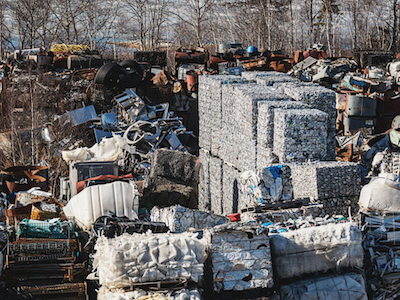Market
February 22, 2024
Steel sector urges end to South Africa’s scrap metal export ban
The trade body Steel and Engineering Industries Federation of Southern Africa (SEIFSA) has revived its call for the government to end prohibition of scrap metal exports, saying it is threatening the whole industry with collapse.
Introduced in November 2022, the measure was intended to reduce the theft of cables and other infrastructure by removing a market for the stolen goods, thereby suppressing the price enough to disincentivize theft. The government is considering extending the prohibition for another six months.
“The export ban communicated a very poor economic signal where blunt industrial policy instruments are deployed to combat crime, which resulted in a myriad of unintended consequences,” Seifsa’s Chief Operations Officer Tafadzwa Chibanguza was quoted as saying by local media.
He argued the prohibition has caused more economic harm than good, adding: “This is evidenced by the policy being one of the contributing factors to the announcement by ArcelorMittal South Africa on the possible closure of its long products business.”
Last November the company said it would shut down its Newcastle and Vereeniging works because of a difficult trading environment, falling steel demand and a range of challenges such as logistics failures, high transport costs, power supply problems and government policy favoring scrap-based steel making over the integrated route. ArcelorMittal South Africa is talking with the government, unions and other interested parties to find ways of averting the closures.
Chibanguza also highlighted the way Seifsa, the Steel and Engineering Industries Federation of Southern Africa in full, is working with the department of trade, industry and competition to combat movement of illegitimate scrap metal.
“This will be done by the phasing out of the use of cash in scrap metal transactions, rigorously inspecting the origins of scrap metal, and an industry zero-tolerance approach to purchases of scrap metal from unidentified sources or where the product may reasonably be suspected to be from stolen public infrastructure,” he said.
“However, a pre-condition for the successful development of this industrial policy framework is ensuring demand for steel and related products through consistent and large-scale public projects. To date this has been a major constraint to the economic benefits of the steel sector, which has resulted in production contraction and a structural decline in employment.”





